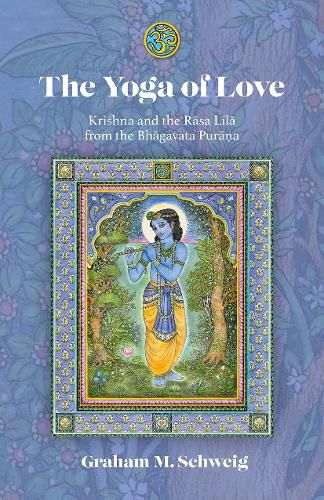Readings Newsletter
Become a Readings Member to make your shopping experience even easier.
Sign in or sign up for free!
You’re not far away from qualifying for FREE standard shipping within Australia
You’ve qualified for FREE standard shipping within Australia
The cart is loading…






The heart of this book is a dramatic love poem, the Rasa Lila, which is the ultimate focal point of one of the most treasured Sanskrit texts of India, the Bhagavata Pura?a. Judged a literary masterpiece by Indian and Western scholars alike, this work of poetic genius and soaring religious vision is one of the world's greatest sacred love stories and, as Graham M. Schweig demonstrates, should be regarded as India's Song of Songs. The story presents the supreme deity as the youthful and amorous cowherd, Krishna, who sends out a love call to his maidens, inviting them to an enchanting and celebratory dance of divine love.
In The Yoga of Love, Schweig translates the Rasa Lila and, through his commentaries, offers an exploration of its historical context, as well as an analysis of its aesthetic and emotional richness. He illuminates the religious and ethical nuances of the drama, drawing widely from the commentaries and esoteric vision of masters of the Chaitanya school of Vaishnavism, a prominent devotional Hindu tradition. Themes such as transcendence of death through love, the yoga of devotion, the contrast between worldly love and passionate love for God, and the dialectical tension between ethical boundaries and boundless love are presented. The final event of the Rasa dance, the author concludes, presents a dynamic symbol of supreme love that provides the basis for a theological vision of genuine religious pluralism.
$9.00 standard shipping within Australia
FREE standard shipping within Australia for orders over $100.00
Express & International shipping calculated at checkout
The heart of this book is a dramatic love poem, the Rasa Lila, which is the ultimate focal point of one of the most treasured Sanskrit texts of India, the Bhagavata Pura?a. Judged a literary masterpiece by Indian and Western scholars alike, this work of poetic genius and soaring religious vision is one of the world's greatest sacred love stories and, as Graham M. Schweig demonstrates, should be regarded as India's Song of Songs. The story presents the supreme deity as the youthful and amorous cowherd, Krishna, who sends out a love call to his maidens, inviting them to an enchanting and celebratory dance of divine love.
In The Yoga of Love, Schweig translates the Rasa Lila and, through his commentaries, offers an exploration of its historical context, as well as an analysis of its aesthetic and emotional richness. He illuminates the religious and ethical nuances of the drama, drawing widely from the commentaries and esoteric vision of masters of the Chaitanya school of Vaishnavism, a prominent devotional Hindu tradition. Themes such as transcendence of death through love, the yoga of devotion, the contrast between worldly love and passionate love for God, and the dialectical tension between ethical boundaries and boundless love are presented. The final event of the Rasa dance, the author concludes, presents a dynamic symbol of supreme love that provides the basis for a theological vision of genuine religious pluralism.